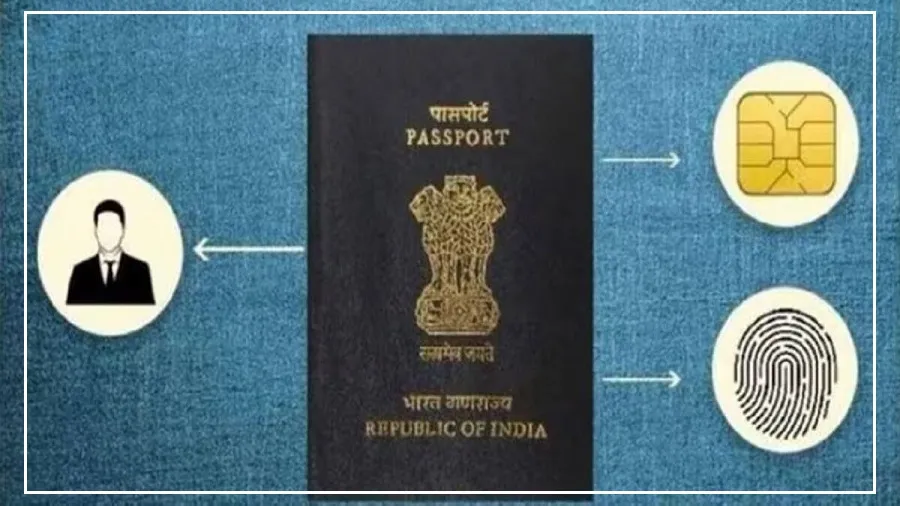Traveling abroad is set to become easier and safer for Indian citizens. India has introduced biometric, chip-based e-passports, joining more than 120 countries such as the USA, Canada, Japan, France, and the UK that already use this technology.
The new e-passports will not only make immigration processes faster and contactless but will also help in preventing identity fraud.
What is an E-Passport, and What Makes It Special?
India will begin rolling out e-passports from April 2024 under the Passport Seva Program 2.0.
The pilot project has already been launched in cities like Nagpur, Bhubaneswar, Jammu, Goa, Shimla, Jaipur, Chennai, and Hyderabad, with the full rollout expected by June 2025.
The new e-passport contains an RFID chip and antenna embedded in its back cover.
This chip stores biometric and personal information such as name, date of birth, passport number, facial features, and fingerprints securely.
The data is encrypted following international security standards like BAC, PA, and EAC.
How Will the Passenger Experience Change?
Indian citizens traveling abroad with e-passports will now enjoy a faster, automated, and contactless immigration process.
E-gates will replace long queues, making the entire travel experience smoother and more efficient.
India Joins the List of Countries Using E-Passports
Countries like the USA, Canada, Japan, France, Germany, the UK, Singapore, Australia, and South Korea have already implemented e-passports.
With this new initiative, Indian citizens will experience more convenience and respect when entering these countries.
How to Apply for an E-Passport
The application process for e-passports remains the same.
Citizens can apply on the passport service portal and visit the nearest passport service center or post office passport center to provide biometric information.
This is just the beginning; in the future, features like digital visas, mobile passport wallets, and integration with Aadhaar and DigiLocker may be introduced, making the entire process fully digital and paperless.

























